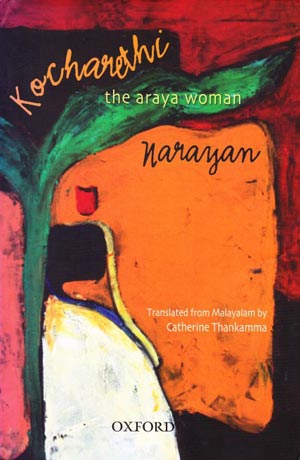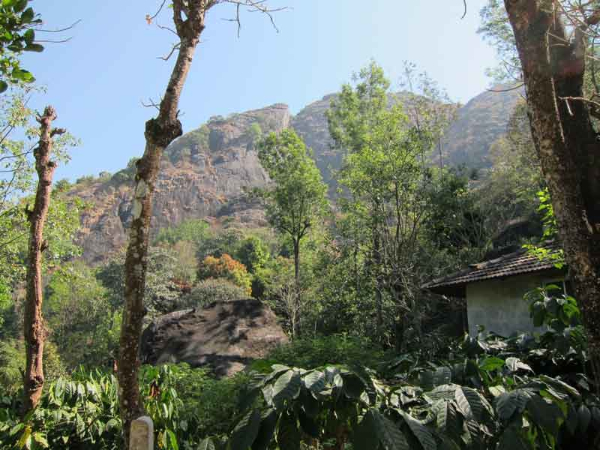What we are telling to the outer world is that no conservation would be possible without cooperation of the local community, especially the aborigines [Adivasis]. Integrating their traditional wisdom with modern-day scientific approach would definitely yield results.
Source: KH Amitha Bachan (researcher and consultant to Kerala Forest Department and the World Wildlife Fund-India Ecological Monitoring Programme) quoted in “An Adivasi community in Kerala has united to save the region’s dwindling hornbill population”
URL: https://scroll.in/article/948036/an-adivasi-community-in-kerala-has-united-to-save-the-regions-dwindling-hornbill-population
Date Visited: 20 February 2023
Tribals in Kerala (known in Malayalam as the Adivasis) are the tribal population found in the Indian state of Kerala. Most of the tribals of Kerala live in the forests and mountains of Western Ghats, bordering Karnataka and Tamil Nadu.
Tribals in Kerala are officially designated as “Scheduled Tribes” for affirmative action purposes.[1] Kerala Public Service Commission, Government of Kerala, lists thirty-six of Scheduled Tribes in Kerala.[1] Tribals in Kerala are classified by Scheduled Tribes Development Department, Government of Kerala into three sub-sets (Particularly Vulnerable, Marginalised and Minorities).[2]
According to the 2011 Census of India, the Scheduled Tribe population in Kerala is 4,84,839 (1.5 % of the total population).[2] Wayanad district has the highest number of tribals (1,51,443) in Kerala, followed by Idukki (55,815), Palakkad (48,972) and Kasaragod (48,857) and Kannur districts (41,371).[2] Paniyan, Irula, Kattunaikan, and Adiyan are some of the major “communities” among Kerala tribals.[2]
A. K. Balan, Member of the Legislative Assembly from Tarur, is the current Kerala Minister for Welfare of Scheduled Castes, Scheduled Tribes and Backward Classes.[3]
Source: Tribals in Kerala – Wikipedia, the free encyclopedia
URL : https://en.wikipedia.org/wiki/Tribals_in_Kerala
Date Visited: 11 December 2021
[Bold typeface added above for emphasis]

by Narayan >>
Literature | Storytelling >>
The slow erosion of cultural identity, the absence of agency for some sections of society, the increasing erasure of various communities from the supposed democratic space of citizenship, the questionable route ‘modernity’ and ‘development’ take, and the effects they have on men and, differently, on women are all woven into Narayan’s novel. Kocharethi calls upon us to ethically engage with it, to question our complicity in the systemic conditions that produce these lives, to reflect on our own reactions to the tale, to our expectations of the form and genre and to unlearn our frames of understanding. | Learn more >>
“Tribal groups (adivasis) in India have often been excluded, marginalized and oppressed by ‘mainstream’ society. In many ways this exclusion, marginalization and oppression is fostered by the way in which ‘mainstream’ society looks at the adivasis – as exotic, dangerous, or ‘primitive’ others.” – Ganesh [G.N.] Devy in A Nomad Called Thief: Reflections on Adivasi Silence and Voice | Classifications in different states >>
LIST OF SCHEDULED TRIBES IN THE KERALA STATE
- Adiyan
- Aranda (Arandan)
- Eravallan
- Hill Pulaya (Mala Pulayan, Kurumba Pulayan, Karavazhi Pulayan, Pamba Pulayan)
- Irular, Irulan
- Kadar (Wayanad Kadar)
- Kanikkaran, Kanikar
- Karimpalan
- Kattunayakan
- Kochuvelan
- Koraga
- Kudiya, Melakudi
- Kurichchan (Kurichiyan)
- Kurumans (Mullu Kuruman, Mulla Kuruman, Mala Kuruman)
- Kurumbas (Kurumbar, Kurumban)
- Mahamalasar
- Malai Arayan (Mala Arayan)
- Malai Pandaran
- Malai Vedan (Mala Vedan)
- Malakkuravan
- Malasar
- Malayan, Nattu Malayan, Konga Malayan (Excluding the areas comprising the Kasaragod, Kannur, Wayanad and Kozhikode Districts)
- Mavilan
- Malayarayar
- Mannan (to be spelt in Malayalam script in parenthisis)
- Muthuvan,Mudugar,Muduvan
- Palleyan, Palliyan, Paliyar, Palliya
- Paniyan
- Ulladan, Ullatan
- Uraly
- Mala Vettuvan (in Kasaragod and Kannur Districts)
- Ten Kurumban, Jenu Kurumban
- Thachenadan, Thachenadan, Moopan
- Cholanaickan
- Malapanickar
- Vettakuruman
Source: Kerala Public Service Commission, State Government of Kerala, India
URL: https://www.keralapsc.gov.in/list-scheduled-castes-kerala-state
Date Visited: 11 December 2021
See also
Adverse inclusion | Casteism | Rural poverty
Childhood | Tribal Children’s Right to Education in India
Demographic Status of Scheduled Tribe Population of India (Census figures 2011)
Fact checking | Figures, census and other statistics
Human Rights Commission (posts) | www.nhrc.nic.in (Government of India)
Search tips | Names of tribal communities, regions and states of India
“What is the Forest Rights Act about?” – Campaign for Survival and Dignity
“Who are Scheduled Tribes?” – Government of India (National Commission for Scheduled Tribes, NCST)
Up-to-date reports by Indian journalists and commentators
To search Indian periodicals, magazines, web portals and other sources safely, click here. To find an Indian PhD thesis on a particular tribal community, region and related issues, click here >>
Search tips
Combine the name of any particular state, language or region with that of any tribal (Adivasi) community.
Add keywords of special interest (music, poetry, dance just as health, sacred grove and biodiversity); learn about the rights of Scheduled Tribes such as the “Forest Rights Act” (FRA); and the United Nations “Declaration on the Rights of Indigenous Peoples”, “Universal Declaration of Human Rights”, “women’s rights”, or “children’s right to education”.
Ask a question that includes “tribal” or “Adivasi”, for instance: “Adivasi way of life better?” (or “tribal way of life worse?”)
Specify any particular issue or news item (biodiversity, bonded labour and human trafficking, climate change, ecology, economic development, ethnobotany, ethnomedicine, global warming, hunter-gatherers in a particular region or state, prevention of rural poverty, water access).
For official figures include “scheduled tribe ST” along with a union state or region: e.g. “Chhattisgarh ST community”, “Himalayan tribe”, “Scheduled tribe Tamil Nadu census”, “ST Kerala census”, “Particularly Vulnerable Tribal Group Jharkhand”, “PVTG Rajasthan”, “Adivasi ST Kerala”, “Adibasi ST West Bengal” etc.
In case the Google Custom Search window is not displayed here try the following: (1) toggle between “Reader” and regular viewing; (2) in your browser’s Security settings select “Enable JavaScript” | More tips >>
Note: hyperlinks and quotes are meant for fact-checking and information purposes only | Disclaimer >>

Photo © Ludwig Pesch
Wayanad song by Kanavu music group >>
See also
Biodiversity and development – Kerala
Childhood – Kerala | Childrens rights: Education | UNICEF India | Safe search
Childrens rights: English or Malayalam (UNICEF India)
eBook | Background guide for education
Kerala | State wise ST list (Scheduled Tribes)
Recommendations by the Expert Committee on Tribal Health
Tribal schools and educational projects – Kerala
Video | M.S. Swaminathan on Biodiversity and the sharing of resources
Video | Trailer to “Have you seen the arana?” – Kerala
Vulnerable tribal groups – Kerala
Women | Safe search | President Droupadi Murmu on women’s empowerment